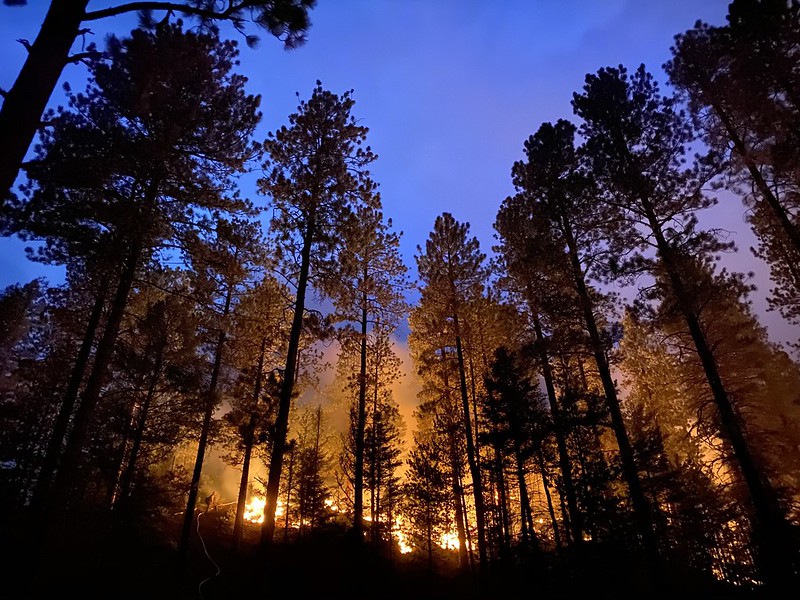This Collaborative Working Group aims to address the challenges posed by wildfires and climate change in the Intermountain West, focusing on research to understand wildfire impacts, governance strategies, and watershed resilience.

Photo Credit: US Forest Service
In the Intermountain West, urban water supplies are primarily derived from mountainous headwater systems. Human and ecological processes of population growth, urbanization, wildfires, and droughts, compounded by climate change, interact to place severe strains on these water sources. Communities in the IMW are increasingly forced to develop alternative strategies to protect their access to water. Further, the Western U.S. has experienced a dramatic increase in the size, severity, and frequency of severe wildfires in our headwater watersheds over the past several decades. Severe wildfires pose a direct threat to human lives, infrastructure, and the natural environment. This CWG will work across Project Charters to identify opportunities for convergent research that advances our understanding of wildfire and post-wildfire impacts; innovative governance strategies for reducing wildfire risks and enhancing watershed and community resilience to fires; and cross-scale wildfire and watershed dynamics and knowledge exchange.
Team Members
- Melinda Morgan (UNM)
- Ryan Morrison (CSU)
- Julie Padowski (WSU)
- Camille Stevens-Rumann (CSU)
- Lani Tsinnajinnie (UNM)
Students
- Abelino Fernandez-Leger (NM Tech)
- William Mejía-Garcia (UNM)
- Alyssa Mineau (NMSU)
- Marsella Macias (UNM)
- Moazzam Rind (WSU)
- Lindsey Rotche (UNM)
- Jamie Woolet (CSU)
Wildfire and Watershed Horizon Scan Resources
-
Jones K.W., D. Cadol, M. Morgan, C. Stevens-Rumann, D. Agnew, O. Burney, J. Calabaza, M.E. Chambers, C.M. Edgeley, D. Falk, L.G. Hughes, C. Marsh, C.A. Schultz, L. McCarthy, R. Morrison, M. Montoya, J. Padowski, M. Piccarello, J.R. Pinto, J. Roach, M. Roberts, K. Rodman, J. Triepke, L. Tsinnajinnie, N. vonHedemann, A.J. Webster, W.C. Buettner, A. Fernandez Leger, A. Mineau, L. Rotche, G. Russell and J. Woolet. 2025. A horizon scan to inform research priorities on post-wildfire forest restoration and recovery in the western United States. Frontiers in Forest and Global Change, 8:1595886. https://doi.org/10.3389/ffgc.2025.1595886
- Fact Sheet: Research Priorities on Post-Wildfire Forest Restoration and Recovery in the Western United States
- Horizon Scan on Post-Wildfire Forest Restoration and Recovery in the Western U.S.: Summary of 21 Final Topics